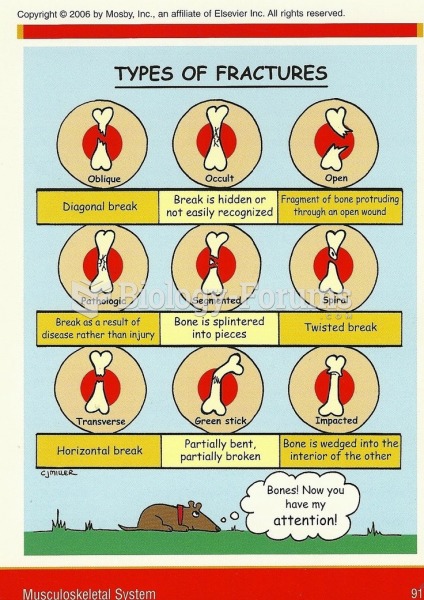|
|
|
Immunoglobulin injections may give short-term protection against, or reduce severity of certain diseases. They help people who have an inherited problem making their own antibodies, or those who are having certain types of cancer treatments.
Aspirin is the most widely used drug in the world. It has even been recognized as such by the Guinness Book of World Records.
There are 20 feet of blood vessels in each square inch of human skin.
People with alcoholism are at a much greater risk of malnutrition than are other people and usually exhibit low levels of most vitamins (especially folic acid). This is because alcohol often takes the place of 50% of their daily intake of calories, with little nutritional value contained in it.
The average human gut is home to perhaps 500 to 1,000 different species of bacteria.







